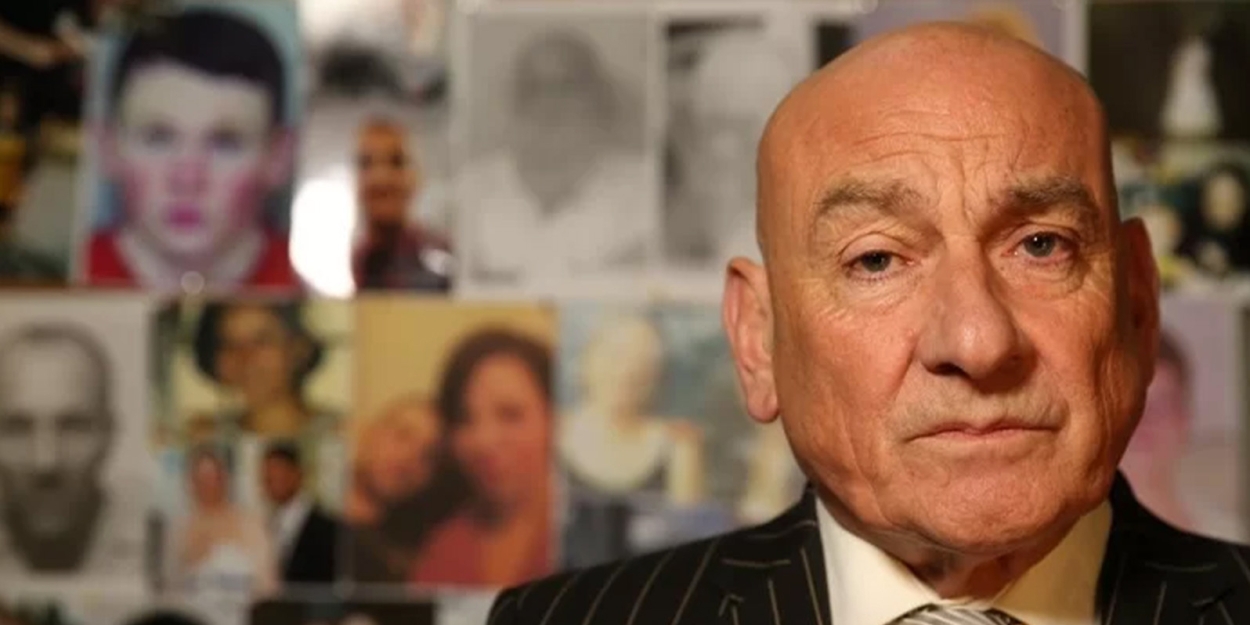Review: THE MAKINGS OF A MURDERER, Adelphi Theatre
Scottish detective David Swindle hits the road with a new stage show that takes a look at British serial killers.

![]() Serial killers are all the rage these days. There's a weird kind of fascination that surrounds them and some have controversial cult followings. From Jeffrey Dahmer to Ted Bundy, the American ones might be the most popular, but the United Kingdom has had its own fair share.
Serial killers are all the rage these days. There's a weird kind of fascination that surrounds them and some have controversial cult followings. From Jeffrey Dahmer to Ted Bundy, the American ones might be the most popular, but the United Kingdom has had its own fair share.
Jack the Ripper will be the first one to jump to mind, but we've also had a Yorkshire Ripper (Peter Sutcliffe) in the late 70s and how could one forget Ian Brady and Myra Hindley, who committed the Moors Murders in the 60s? Harold Shipman, Dr Death, is the most prolific, with the number of alleged victims ranging in the 200s. There are obviously more.
Retired Scottish detective David Swindle breaks down some of the most famous cases in a tour that impressively counts more than 100 dates. The Makings of a Murderer hit the West End for a one-off date at the Adelphi. His resumé boasts high profile positions in various police departments, hands-on crime investigation, and consultation. Swindle was the man who caught Peter Tobin, who was declared a psychopath. He is quite the character too.
The show isn't a glamorisation of homicides, it's the opposite. Swindle actually warns that the sensationalism that we've come to associate with the matter is rather disrespectful. The victims are his priority. He suggests that his problem isn't related to the quantity of new pieces produced on the murderers at all, but the media circus that ends up surrounding them. Their stories should be out there so that we don't forget what they did.
He explores the potential behavioural causes, from nice couples to baby-faced sociopaths. Whether it's nature, nurture, or pure evil, "Why did [they] do it? Because [they] could". The night has strong classroom vibes, inclusive of a fancy PowerPoint presentation and a few jokes sprinkled in for good measure. It's a sombre, serious atmosphere that's rooted in education and not hype.
Swindle drives a practical narrative that avoids storytelling in order to preserve the naked truth and honour those who lost their lives with such brutality. But this is, ultimately, entertainment and we're not sitting in a lecture hall. The lack of sordid details is refreshing, but the production would perhaps benefit from a more personal take instead of only bare fact.
We don't get to learn enough of his own hands-on experience, of what it felt like being there, the interviews that were carried out, how the arrests happened, how the killers reacted. It's a shame, this creates a complete lack of dramatic tension that leads to peaks and valleys in terms of attention and catchiness of the subject.
Lots of details are easily accessible on the internet, so an audience might need more to want to attend something like this. It's interesting, but not always gripping. The information becomes redundant here and there; we only need to hear that they targeted vulnerable people once to understand it. It's also common sense.
Operation Anagram (which is how they caught Tobin) takes up a lot of the second act. He profiles him alongside the other homicides with wide brushstrokes, but we don't come out of it with as much insight as one would expect. It's still quite instructive for someone who isn't familiar with the matter.
All in all, it's an evening that refocuses the conversation on the victims and presents the facts through a lens that strays from the usual aggrandisation of vicious exploits. The use of the word "trophy", for instance, implies victory, he says, so he redefines them as "sad souvenirs".
Swindle's caustic humour surfaces when necessary, but recalibrates itself with punctual aplomb. He reviews how practices have changed since the murderers in question were active, saying that police have gotten better, but so have criminals. The show isn't gory at all, but opts for a precarious balance between warning and veiled alarm instead. It ends with a selfie: "one, two, three...everybody say killer!"
The Makings of a Murderer is on tour until 10 December.
Reader Reviews
Videos

